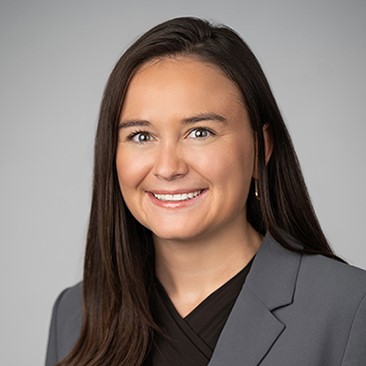A recent denial of no-action relief by the SEC Staff has called into question how closely a company’s proxy access bylaw must mirror a shareholder proposal in order to obtain no-action relief from the Staff on the ground that the proposal has been “substantially implemented.” While not expressly stated, in declining to grant H&R Block, Inc.’s Rule 14a-8(i)(10) no-action request, the Staff seems to be distinguishing between a proposal seeking to amend specific provisions of an existing access bylaw and a proposal seeking to adopt a new access bylaw where none existed when the proposal was submitted. The Staff’s decision may open the floodgates for single-issue or narrowly focused proxy access bylaw amendment proposals in anticipation of the 2017 proxy season.
During the 2015 and 2016 proxy seasons, 39 companies, beginning with General Electric Company, obtained no-action relief from the Staff allowing the company to exclude a shareholder proxy access proposal under Rule 14a-8(i)(10) on the ground that the company had “substantially implemented” the shareholder proposal by preemptive adoption of a proxy access bylaw. In each case, the company’s access bylaw included two key elements of the now-invalidated federal proxy access rule, Rule 14a-11: the minimum 3%, 3-year ownership requirements applicable to each nominating shareholder or group of shareholders. In granting the relief, the Staff expressed the view that the adoption of a proxy access bylaw with these thresholds achieved the “essential objective” of the shareholder proposal notwithstanding, in many cases, a number of differences from the proposal. To take one example, Alaska Air Group received no action relief even though its bylaw limited to 20 the number of shareholders permitted to aggregate their holdings to form a group to reach the 3%/3-year threshold and also limited the number of proxy access nominees to the greater of 2 or 20% of the board, while the shareholder proponent sought an unrestricted number of shareholders to reach the 3% threshold and limited the number of proxy access nominees to the greater of 2 or 25% of the board. For our analysis of the first wave of no-action letters based on “substantial implementation” under Rule 14a-8-(i)(10), see our Alert here.
H&R Block sought to exclude a proposal submitted by Jim McRitchie asking that the company amend certain provisions of its existing 3%/3-year proxy access bylaw, which had been adopted in 2015. In denying (i)(10) no-action relief to H&R Block, the Staff appears to be signaling that, as a proposal becomes more narrowly focused on seeking specific modifications to a company’s access bylaw, it may become more difficult to persuade the Staff that the subject matter of the proposal has been “substantially implemented.”
The proposed amendments to H&R Block’s existing access bylaw were as follows:
- Ownership Aggregation. Proponent: no limitation on the number of shareholders that can aggregate their shares to achieve the minimum 3% ownership threshold. Existing bylaw provision: no more than 20 shareholders may aggregate their shareholdings.
- Number of Permitted Proxy Access Nominees. Proponent: the maximum number of access nominees should be the greater of 25% of the directors then serving, or 2. Existing bylaw provision: 20% of the board, which meant for H&R Block that 2 of 11 existing board seats would be available for proxy access nominees, but if the size of the board were reduced to less than 10, only 1 seat would be available.
- Restrictions on Renomination of Access Nominees. Proponent: no limitation based on the number or percentage of votes received in any election. Existing bylaw provision: renomination not permitted for two subsequent meetings if the shareholder nominee does not receive support from 25% of the votes cast.
- Treatment of Loaned Shares. Proponent: count loaned securities toward the ownership threshold if the nominating shareholder or group represents that it has the legal right to recall those securities for voting purposes, will vote the securities at the annual meeting, and will hold those securities through the date of that meeting. Existing bylaw provision: count loaned shares only if they are recallable on three business days’ notice.
In response to the company’s request for exclusion under Rule 14a-8(i)(10), the Staff stated that it was “unable to conclude that H&R Block’s proxy access bylaw compares favorably with the guidelines of the proposal.” This outcome suggests that the Staff will focus more critically than it previously has done, at least in situations where discrete changes to an existing access bylaw are sought, on the congruence between each separate element of the proposal and the corresponding element of the existing bylaw to determine whether the subject-matter of the proposal has been “substantially implemented.”
In light of the Staff’s no-action determination and related correspondence from Jim McRitchie to the Staff, we expect an uptick in submission of shareholder proposals to companies that have adopted proxy access bylaws. Companies should expect this “next generation” of proposals to focus on a single issue or a limited set of issues, such as the number of shareholders permitted to aggregate, the treatment of loaned shares, re-nomination restrictions, and/or the number of board seats available to access nominees. Companies should also expect the Staff to address a request to exclude a “next generation” proposal by comparing each element of the proponent’s recommended bylaw amendment with the company’s bylaw to assess whether the “essential objective” of the proposal has already been achieved, rather than considering more broadly, as it did this past season, whether the shareholder proposal is in basic alignment with the company’s proxy access bylaw on the minimum nominee eligibility requirements.
Shareholder support for access bylaw amendment proposals has not been insignificant. During the 2016 proxy season to date, five companies included such proposals in their annual meeting proxy statements. Of these, one proposal received support from a majority of votes cast – New York Community Bancorp (3% ownership threshold in existing bylaw), 67.1% support. Three other proposals received significant but not quite majority-support – Cabot Oil & Gas (5% threshold in existing bylaw), 45.5% support; Noble Energy (5% ownership threshold in existing bylaw), 38.3% support; Whole Foods (3% ownership threshold in existing bylaw), 39.8% support. The vote on the H&R Block proposal is pending (and has received ISS’s recommendation “for”).
Like the SEC Staff, shareholders are homing in on the details when comparing the relative merits of management-sponsored and shareholder-sponsored access bylaws. In preparation for these meetings, we suggest that companies take into account the positions on proxy access taken by large institutional investors and proxy advisory firms.[i] All companies should continue to discuss proxy access with key shareholders when conducting outreach ahead of the 2017 proxy season. Companies that have not yet adopted proxy access bylaws may wish to keep a proxy access bylaw “on the shelf” or to revisit the provisions of an access bylaw currently “on the shelf” in light of recent developments.
[i] See, e.g., Council of Institutional Investors, Proxy Access: Best Practices (Aug. 2015); Institutional Shareholder Services, U.S. Proxy Voting Policies and Procedures (Excluding Compensation-Related), Frequently Asked Questions (Dec. 18, 2015) at 19; Glass Lewis’ Views on Proxy Access Developments (Jan. 28, 2015).













